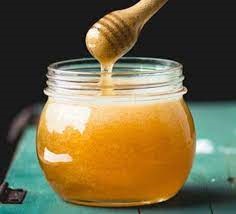Qatar University Study Shows That Methylglyoxal, a Bioactive Component In Manuka Honey Exhibits Virucidal Properties Against SARS-CoV-2 In Vitro
Source: Manuka Honey-COVID-19 Oct 21, 2021 3 years, 6 months, 5 days, 11 hours, 13 minutes ago
Manuka Honey-COVID-19: A new study by researchers from Qatar University has demonstrated that methylglyoxal (MG), a bioactive component in manuka honey exhibits virucidal properties against the SARS-CoV-2 coronavirus in vitro.

The study findings were published in the University’s website and has not been peer reviewed by any third parties yet.
https://qspace.qu.edu.qa/handle/10576/24398
To date there is no approved antiviral treatment for the COVID-19 disease. Despite a massive global vaccination programme, it is gradually coming to light despite massive cover ups, censorships and control of the COVID-19 narratives, there is now a growing number of breakthrough infections among the fully vaccinated with some leading to hospitalizations due to disease severity and even deaths in some cases. It is expected that as more Delta sub-variants and other immune evasive variants emerge, the pandemic will soon take a more catastrophic turn. At the moment more than 242.9 million people globally have been infected with the SARS-CoV-2 coronavirus and more than 4.94 million people have died with America alone registering more than 751,000 COVID-19 deaths so far.
https://www.worldometers.info/coronavirus/
Scientists are desperately seeking suitable antivirals that would not be toxic to human body unlike the two big pharma antiviral candidates that are likely to get approved by the no longer U.S. FDA.
Numerous past studies have shown that Manuka honey has virucidal/antiviral effect.
Methylglyoxal (MG), a bioactive component in Manuka honey, has antiviral activity in vitro. MG may modify arginine residues in the functional domains of viral spike and nucleocapsid proteins, resulting in loss of charge, protein misfolding and inactivation.
The study team aim was to characterize the antiviral activity of Manuka honey against SARS-CoV-2 in vitro.
For the
Manuka Honey-COVID-19 study, wild-type SARS-CoV-2 with titers of multiplicities of infection (MOI) 0.1 and 0.05 were incubated with 2-fold serial dilutions of 250+ Manuka honey (equivalent to 250 to 31 µM) in infection medium (Dulbecco's Modified Eagle Medium + 2% fetal bovine serum + 100 units/ml penicillin + 100 µg/ml streptomycin) for 3 h.
Manuka honey treated and untreated control SARS-CoV-2 was incubated with confluent cultures of Vero cells in vitro for 1 h, cultures washed with phosphate-buffered saline and incubated in fresh infection medium at 37°C for 4 - 5 days until 70% of virus control cells displayed cytopathic effect.
The study team also studied the effect of scavenging MG in Manuka Honey with aminoguanidine (AG; 500 µM) on virucidal activity.
The antiviral activity of MG was judged by median tissue culture infectious dose (TCID50) assays. Data analysis was by logistic regression. TCID50 (mean ± SD) was deduced by interpolation.
The study findings showed that diluted Manuka honey inhibited SARS-CoV-2 replication in Vero cells.
SARS-
CoV-2 was incubated in diluted Manuka honey in medium at 37°C for 3 h before adding to Vero cells.
It was found that Manuka honey dilutions down to 125 µM MG equivalents completely inhibited cytopathic effect of SARS-CoV-2 whereas 31.25 µM and 62.5 µM MG equivalents had limited effect.
Logistic regression and interpolation of the cytopathic effect indicated that the TCID50 = 72 ± 2 µM MG equivalents for MOI of 0.1. Prior scavenging of MG by addition of AG resulted in virus replication levels equivalent to those seen in the virus control without AG.
The study findings showed that Manuka honey has antiviral activity against SARS-CoV-2 when incubated with the virus in cell-free media at no greater than ca. 40-fold dilutions of 250+ grade. Anti-viral activity was inhibited by AG, consistent with the anti-viral effect being mediated by MG. Manuka honey dilutions in MG equivalents had similar antiviral effect compared to authentic MG, also consistent with MG content of Manuka honey mediating the antiviral effect.
Although Manuka honey may inactivate SARS-CoV-2 in cell-free culture medium, its antiviral activity in vivo for other than topical application may be limited because of the rapid metabolism of MG by the glyoxalase system and limited bioavailability of oral MG.
The study team is conducting more research as to how to address these limitations and tap the potential usage of methylglyoxal (MG) in Manuka honey to help with COVID-19.
For more on
Manuka Honey and COVID-19, keep on logging to Thailand Medical News.
Read Also:
https://www.thailandmedical.news/news/covid-19-herbs-multicenter-randomized-controlled-trial-shows-that-nigella-sativa-and-honey-is-able-to-treat-moderate-to-severe-covid-19-patients
